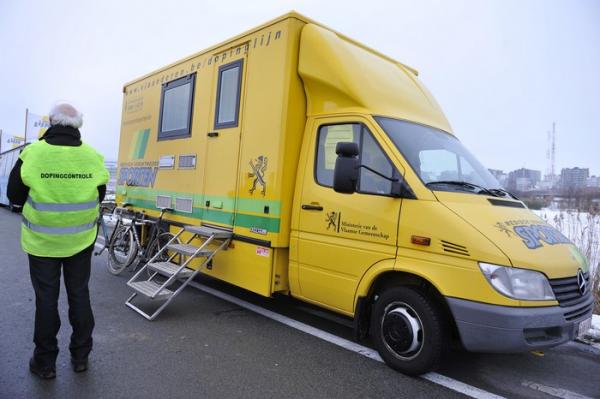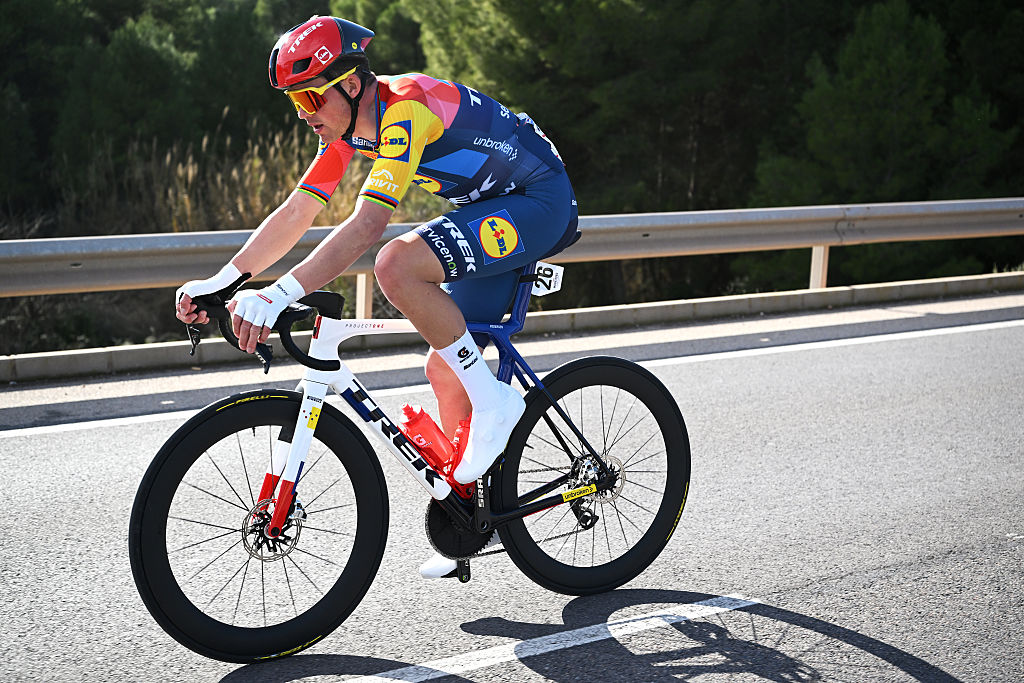Costa Rican team accepts three positives but asks for B sample
BCR-Pizza Hut-Powerade squad "thanked" local media for "respecting the due process"
The latest race content, interviews, features, reviews and expert buying guides, direct to your inbox!
You are now subscribed
Your newsletter sign-up was successful

Even though the names of the four Costa Rican cyclists, whose anti-doping tests from the last edition of the Vuelta a Costa Rica returned positives with "GW-501516", haven't been officially revealed by the Costa Rican Cycling Federation (FECOCI), one of the five major road teams of the country, the BCR-Pizza Hut-Powerade, released an statement on Monday in which they accept there are three of their riders involved in the situation.
"I would like to inform you that some of our riders received a notification from the Union Cycliste Internationale (UCI) regarding Adverse Analytical Founds in some of their urine samples from the last Vuelta a Costa Rica" says the press release, which is signed by the team's Directeur Sportif Albin Brenes, who is one of the most successful Costa Rican coaches and is also manager of the national mountain bike team. "As for now, we will keep their names in reserve as we respect their privacy until the process is finished. We would also want to thank you for respecting this due process".
Brenes confirmed that his team instructed their men to request the B sample analysis and to apply for their right to have a representative when the containers are opened.
"Our cyclists attended other anti-doping controls during the Vuelta itself and in several races before and after, but only one of their samples returned adverse," Brenes said in the team's statement. "I would like to remind that - over the past 30 years - our team has produced great cyclists that have represented the country and gained prestige at a national, Central American, Pan American, Olympic and World level. This is the first time we face a situation like this but we believe that with the help of God, our history and all cycling fans, we will go on from it."
Local website names the four
Local website crciclismo.com has published the entire communication from the BCR-Pizza Hut-Powerade team, along with a list of names that it says are the four riders whose results returned positive. Paulo Vargas, 33-year-old current National Mountain Bike Champion, who finished 9th overall in the Vuelta and won stages two and eleven; Pablo Mudarra, 21, 8th overall and current U23/Elite National Road Champion; Allan Morales, 24, who finished 4th in the 2012 Vuelta and achieved several top ten stage positions. All these three racers are part of the BCR-Pizza Hut-Powerade organization.
The fourth rider is listed as Steven Villalobos, a 26-year-old who raced for the Coronado team and finished 6th overall. He also won stage 12 which is considered the "queen stage".
The latest race content, interviews, features, reviews and expert buying guides, direct to your inbox!
While the three BCR-Pizza Hut's would be investigated for anti-doping offenses for the first time in their careers, Villalobos already served a two-year sanction following a positive test for Clomifen in the 2009 Vuelta a Costa Rica. He would face a lifetime ban if he accepts the A sample result or if the B sample confirms the initial positive.
Neither Villalobos nor the Coronado team have publically accepted or denied the suspicions. However, on Sunday he told to a local journalist that he was considering retiring from cycling due to "personal motivations".
According to an official statement issued by the BCR-Pizza Hut-Powerade team, it is possible that the process to open the B samples, and a hearing with the cyclists involved, take place between April 30 and May 1, as that's what they have been told by the UCI.
Individual and shared responsibility
Doctor Christian Moraga, a Costa Rican physician and member of the Pan American Cycling Confederation (COPACI) and UCI's anti-doping commission, told local Channel 7 that these adverse findings might result not only in a sanction for each of the riders but in a collective sanction for the team also.
"In past situations the National Anti-Doping Commission (in charge of determining the penalties) has taken into account the number of cases to determine if a team should be sanctioned. It depends on the mutual responsibilities that can be proved during the investigation process and if the evidence points towards an organized doping structure," said Moraga in an interview. "We are very concerned not only because of the fact that there were four AAFs in the same event, but for the substance that was found. It is a lethal drug and the riders should know it."
